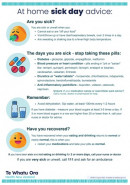Angiotensin receptor blockers (ARBs)
Key points about angiotensin receptor blockers (ARBs)
- Angiotensin receptor blockers or ARBs are used to treat many conditions such as high blood pressure, heart failure and kidney disease caused by diabetes.
- The following ARBs are available in Aotearoa New Zealand candesartan, losartan, losartan with hydrochlorothiazide
- Find out about ARBs and how to take them safely.

Most ARBs have names that end in 'sartan'. The following ARBs are available in Aotearoa New Zealand:
ARBs have many different effects on your body and are used to treat many conditions. They may be used for:
- High blood pressure by relaxing and widening your blood vessels and lowering your blood pressure.
- Heart failure to help your heart pump blood more easily – this can help to relieve symptoms such as shortness of breath and swelling of feet, legs and abdomen (tummy/puku).
- Diabetic kidney disease (diabetic nephropathy) to protect your kidneys and help them to function.
- After a heart attack (myocardial infarction) to protect your heart and prevent future heart attacks or strokes.
ARBs have a similar effect to another group of medicines called ACE inhibitors – they are usually used when taking ACE inhibitors is not right for you. Once you have started taking an ARB you will generally keep taking it for life unless you have a side effect.
ARBs are not recommended if you:
- are pregnant or planning a pregnancy – they should be avoided at all stages of pregnancy
- are breastfeeding – your doctor may recommend another medicine
- have certain types of kidney disease such as renal artery stenosis.
A blood test is usually done before starting an ARB, about 1–2 weeks after the first dose, and every few months while you are taking it. You may need to have more blood tests if your dose increases. These tests check how well your kidneys are working and check your sodium and potassium levels.
Here are some things to know when you're taking ARBs. Other things may be important as well, so ask your healthcare provider what you should know about.
Have a sick day plan
If you have diarrhoea (runny poo) or are vomiting (being sick) from a stomach bug, or have dehydration from other causes, it’s important to let your GP know. They may advise you to stop taking your ARB for a few days and restart when you feel better. The reason for this is that ARBs can increase the amount of potassium salts in your blood, particularly if you are dehydrated.
| Be careful when taking some pain relief medicines |
| Taking ARBs together with pain relief medicines called ‘non-steroidal anti-inflammatory drugs’ (NSAIDs), such as ibuprofen and diclofenac, and medicines called diuretics can be harmful to your kidneys. Read more about NSAIDs and blood pressure medicines. |
Like all medicines, ARBs can cause side effects, although not everyone gets them. Often side effects improve as your body gets used to the new medicine. Common side effects include headache and nausea (feeling sick) or vomiting (being sick). Some people may get a change in their taste, but this is rare. Other side effects to be aware of are dizziness and allergic reaction.
Dizziness
Dizziness is quite common when you first start taking an ARB, especially after the first or second dose. During this time, you are at increased risk of falls, especially when you stand up from sitting or lying down. Your doctor will start you on a low dose and slowly increase how much you take. When starting an ARB get up slowly out of bed or stand up slowly, take a few minutes to sit on your bed or on a chair first. The dizziness goes away after a while. If the dizziness is severe or ongoing, tell your doctor.
Allergic reaction
Some people taking ARBs may develop an allergic reaction, which causes swollen lips and breathing difficulties. This is rare but can happen any time from 2 weeks to 2 years after starting an ARB. If this happens, seek medical attention immediately.
Read more about medicines and side effects and reporting a reaction you think might be a side effect.
References
Brochures

At home sick day advice
Health New Zealand | Te Whatu Ora, 2023

Medicines and side effects
Healthify He Puna Waiora, NZ, 2024

Health Quality and Safety Commission, NZ, 2019 English, te reo Māori
Credits: Healthify He Puna Waiora Pharmacists. Healthify is brought to you by Health Navigator Charitable Trust.
Reviewed by: Maya Patel, MPharm PGDipClinPharm, Auckland
Last reviewed:
Page last updated:


